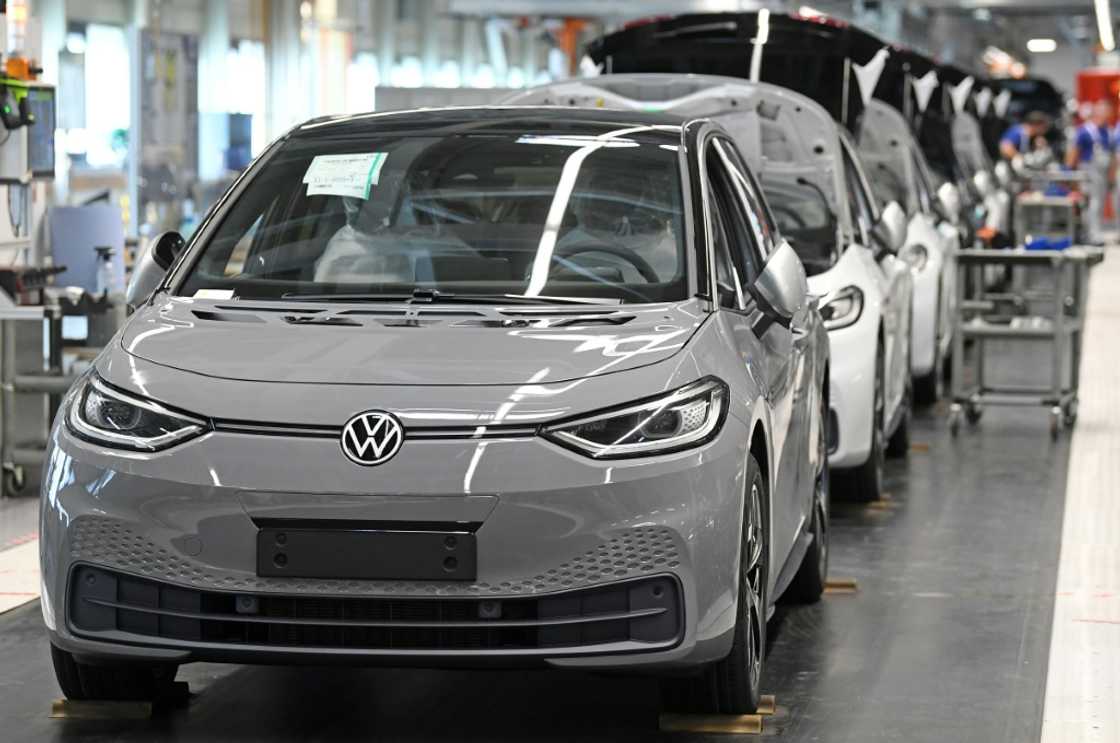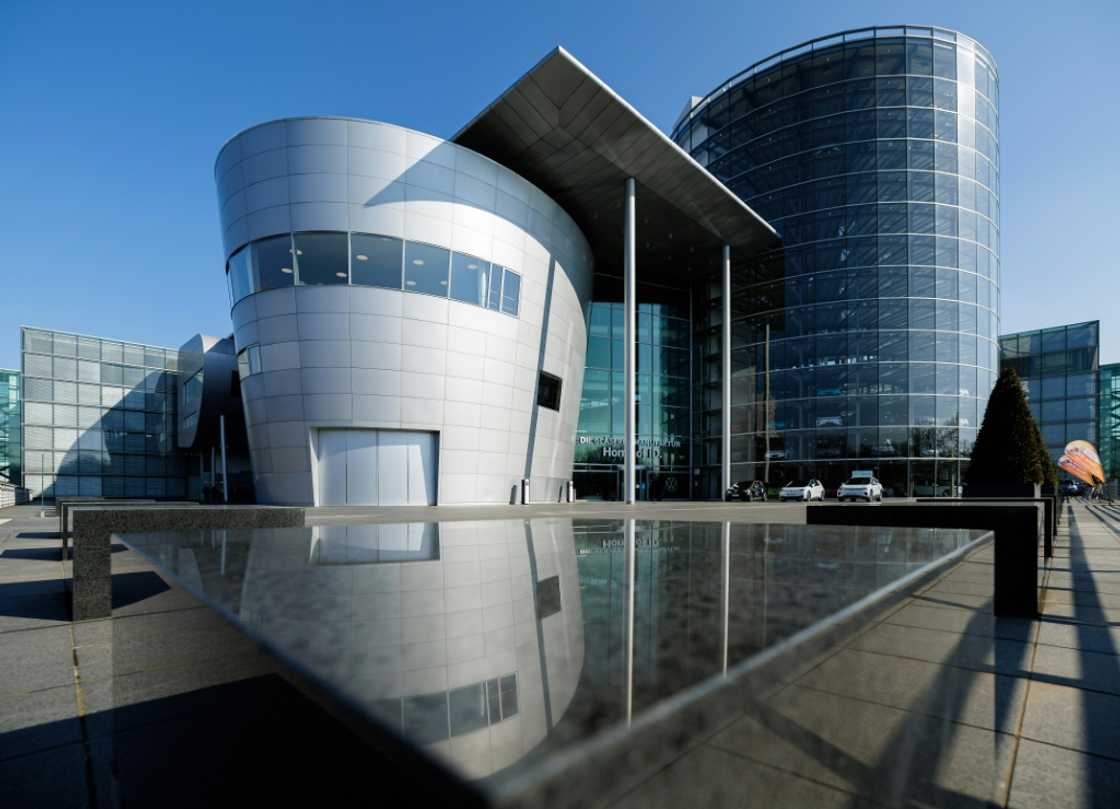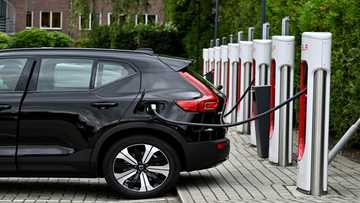As electric shift stalls, Volkswagen weighs up savings

Source: AFP
Volkswagen's factory in the heart of the east German city of Dresden was conceived as a showcase for the auto giant's electric future but on a September afternoon the production line stands still.
Rather than serving as a shining example, the site, where the group's flagship electric model ID.3 is finished, is more of an illustration of the challenges facing Volkswagen's transition away from internal combustion engines.
Production of battery-powered vehicles at the plant is small scale and slower than its foreign rivals, which have left the storied German group for dust.
Chinese and American carmakers, such as BYD and Tesla, are well ahead of Volkswagen on the key components needed to make electric vehicles -- notably in the area of battery technology.
Volkswagen is pouring tens of billions of euros into its pivot to electric vehicles. But with the economic outlook less than rosy, chief executive Oliver Blume has pledged to "work hard" on cutting costs to boost performance.
The slashing of 269 temporary posts at another key e-cars factory in nearby Zwickau recently has raised questions about the future of the workforce in Dresden, where only around 35 cars are produced every day out of the daily total of 40,000 made by Volkswagen worldwide.
PAY ATTENTION: Follow us on Instagram - get the most important news directly in your favourite app!
The group this week admitted that it is "currently examining, with an open mind, how the (Dresden) site can be oriented in a sustainable and future-proof manner", even as it insisted that "no adaptations are planned in the short-term".
There were "no plans to stop production" of batter-powered cars at the plant, stressed Christian Sommer, spokesman for the Volkswagen unit in Saxony, after talks between workers and management.
VW executives were also at pains to underline that the jobs of some 300 people employed at the Dresden plant are safe for the time being.
But the emblematic plant's purpose may have to be reimagined as Volkswagen's electric ambitions struggle to get off the ground.
'Weak market'

Source: AFP
On a tour of the "Transparent Factory" in Dresden, the future of the plant is also a question posed by visitors and answered equivocally. One bemused guest wonders why the factory is not running full-time if the wait time for a new VW ID.3 is still around six months.
Volkswagen sold 321,000 battery-powered vehicles in the first half of 2023 -- about 50 percent more than in the same period last year and roughly seven percent of its total sales.
But the sector has been blighted by low levels of demand.
"The car market is weak because the world economy is weak," Ferdinand Dudenhoeffer of the Centre Automotive Research told AFP.
High inflation and the end of key government subsidy schemes have dampened the clamour for electric vehicles.
The gloomy economic context adds to the pressure felt by Volkswagen from foreign competitors, which are producing EVs cheaper and faster.
In China, local manufacturers are eating up the share of the domestic market -- a vital source of revenue for Volkswagen, where it had previously been strong.
Fossil fuel cars
At a time when price pressures are intense, Volkswagen will however only be able to present its ID.2all, a model with a starting price of under 25,000 euros, in 2025.
The group is putting over 100 billion euros ($106 billion) into its electric turn over the next five years.
The bulk of the financing will come from sales of its existing range of fossil fuel-powered vehicles.
"VW has to earn money with internal combustion engines to cross-finance its electric transformation," Stefan Bratzel, director of the Centre of Automotive Management, told AFP.
He also believes that more job cuts may be needed at VW. At Zwickau, he estimates that 10 percent of the plant's 10,000 workers will be moved on.
New feature: Сheck out news that is picked for YOU ➡️ click on “Recommended for you” and enjoy!
Source: AFP




